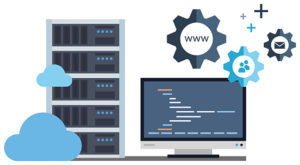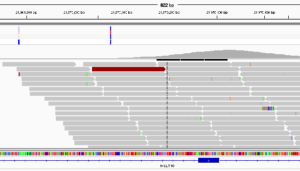Within the Initiative, Working Groups are established to focus on key topic areas including Analytical Validation, Clinical Utility Measures, Data Management and Infrastructure, Test Interpretation and Reporting and Patient Selection.
Clinical Utility & Usefulness Measures
 The Clinical Utility & Usefulness Measures working group is focused on best practices to assess the clinical utility of clinical WGS for the diagnosis of germline genetic disease, by defining the dimensions of clinical utility and emphasizing objective and validated measures. A focus will be placed on defined measures which are most important to different stakeholders and empiric strategies for measuring each dimension.
The Clinical Utility & Usefulness Measures working group is focused on best practices to assess the clinical utility of clinical WGS for the diagnosis of germline genetic disease, by defining the dimensions of clinical utility and emphasizing objective and validated measures. A focus will be placed on defined measures which are most important to different stakeholders and empiric strategies for measuring each dimension.
Goals: Provide practical guidance for measuring and assessing the clinical utility of WGS. Identify key measurement constructs, indicators, and data collection strategies.
Lead author: Robin Hayeems (SickKids)
Working Group Participants:
- David Dimmock (Rady Children’s)
- Shashikant Kulkarni (Baylor Genetics)
- John Belmont (Genetics & Genomics Services, Inc)
- Roberto Mendoza (SickKids)
- David Bick (HudsonAlpha)
- Robert Green (Broad Institute)
- Brendan Lanpher (Mayo Clinic)
- Euan Ashley, Megan Grove (Stanford Medicine)
Data Management and Infrastructure
 The Clinical Data Aggregation, Infrastructure & Sharing working group is focused on best practices for the management, sharing and aggregation of clinical WGS data. This topic includes the unique challenges of the management of data infrastructure that enables optimal data usage and sharing within a clinical diagnostic laboratory setting.
The Clinical Data Aggregation, Infrastructure & Sharing working group is focused on best practices for the management, sharing and aggregation of clinical WGS data. This topic includes the unique challenges of the management of data infrastructure that enables optimal data usage and sharing within a clinical diagnostic laboratory setting.
Goal: Provide resources and recommendations related to the setting up, management, and storage of clinical WGS data
Lead author: Christian Marshall (SickKids)
Working Group Participants:
- Matt Holt (HudsonAlpha)
- Laura Gauthier, Niall Lennon (Broad Institute)
- Euan Ashley (Stanford Medicine)
- Christian Marshall, Ryan Yuen, Joe Whitney, Steven Scherer (SickKids)
- Mathieu Wiepert, Zhiyv Niu (Mayo Clinic)
- Bryan Lajoie, Alison Coffey (Illumina)
- John Belmont* (Genetics & Genomics Services, Inc)
Test Interpretation and Reporting
 The Test Interpretation and Reporting working group is focused on best practices and practical guidance for the analysis and reporting of clinical WGS in the context of germline genetic disease diagnosis. This includes phenotype capture, data annotation, variant filtration and prioritization strategies, content and structure of WGS reports, and WGS reanalysis.
The Test Interpretation and Reporting working group is focused on best practices and practical guidance for the analysis and reporting of clinical WGS in the context of germline genetic disease diagnosis. This includes phenotype capture, data annotation, variant filtration and prioritization strategies, content and structure of WGS reports, and WGS reanalysis.
Goal: Describe best practice recommendations related to genome interpretation and reporting: requisition/consent, annotations, analysis, triage and variant curation, reporting, and reanalysis
Lead authors: Christina Austin-Tse (Broad Institute) and Vaidehi Jobanputra (New York Genome Center)
Members:
- Heidi Rehm (Broad Institute)
- Hutton Kearney, Cherisse Marcou, Sarah Barnett, Nicole Boczek (Mayo Clinic)
- David Bick (HudsonAlpha)
- Richard Gibbs, David Murdock, Eric Venner, Shashi Kulkarni (Baylor Genetics)
- Saurav Guha, Ateeq Rehman, Amanda Thomas-Wilson (NYGC)
- Kasia Ellsworth (Rady Children’s)
- Elizabeth Spiteri (Stanford Medicine)
- Edwin (Ted) Young (SickKids)
- Denise Perry, Ryan Taft (Illumina)
- John Belmont* (Genetics & Genomics Services, Inc)
Patient Selection
Goal: Offer guidance to clinicians (geneticists and non-geneticists) on which patients or patient groups would benefit most from clinical WGS as a first-tier test. Using a systematic evidence-based review and expert opinion to develop recommendations.
Lead author: Kristen Wigby (Rady Children’s Institute for Genomic Medicine)
Members:
- Greg Costain (SickKids)
- John Greally, Vaidehi Jobanputra (New York Genome Center)
- David Bick, Meagan Cochrane (HudsonAlpha)
- Susan Fernbach (Baylor Genetics)
- Deanna Brockman (Broad Institute)
- Caitlin Hale (Stanford Medicine)
- Ryan Taft (Illumina)
- John Belmont* (Genetics & Genomics Services, Inc)
- David Dimmock (Rady Children’s)
Variants of Uncertain Significance
The Variant of Uncertain Significance (VUS) working group is focused on comparing the rates of VUS’s in multi-gene panel tests, whole-exome sequencing and whole-genome sequencing from commercial and academic laboratories across North America. The group will use this data to generate best practices for reducing the rate of VUS’s across genomic testing platforms.
Goal: To determine if panels or genomic tests generate more variants of uncertain significance (VUS)
Lead author: Heidi Rehm, PhD
Members:
- Elizabeth Chao, Jacob Clifford, Timothy Komala, Meghan C Towne, Tina Pesaran, Steven M Harrison, Lily U Hoang, Kelly Radtke (Ambry Genetics)
- Pinar Bayrak-Toydemir, Hunter Best, Timothy J Tidwell (ARUP)
- Heidi L. Rehm (The Broad Institute)
- Laura K Conlin (Children’s Hospital of Philadelphia)
- Joseph T Alaimo, Florencia Del Viso, Ana S. Cohen, Carol J. Saunders, Isabelle Thiffault, Vitoria K. Paolillo (Children’s Mercy Hospital)
- Yan Meng, Christian S Neckelmann(Fulgent Genetics)
- Rhonda Brandon, Paul Kruszka, Kirsty McWalter, Lindsay Havens Dyer, Kyle Retterer (GeneDx)
- Christian R. Marshall, Lynette Lau, Anna Szuto (The Hospital for Sick Children)
- James M Holt, Melissa Kelly, Jacob M Kelly, (HudsonAlpha Clinical Services Laboratory)
- Ryan J Taft, Erin Thorpe, Brittany C Thomas, Denise Perry (Illumina)
- Swaroop Aradhya, Elaine Chen, Kathryn E Hatchell, Dianalee McKnight (Invitae)
- Marcia Eisenberg (Labcorp)
- Matthew S Lebo, Hana Zouk (Laboratory for Molecular Medicine, Mass General Brigham and Women’s Hospital)
- Hutton M Kearney, Michelle L Kluge, Zhiyv Niu, Kristen J Rasmussen (Mayo Clinic)
- Vaidehi Jobanputra, Amanda Thomas-Wilson (New York Genome Center)
- Christina DiVincenzo, Izabela D. Karbassi (Quest)
- Lucia Guidugli, Monia B Hammer (Rady Children’s Institute of Genomic Medicine)
- Swaroop Aradhya, Elizabeth Spiteri (Stanford Medicine)
- Soma Das, Daniela del Gaudio (University of Chicago)
- University of Toronto
- Jillian G Buchan, Sarah A Paolucci (University of Washington)
- Kyle W Davis, Nir Neerman, Christine Stanley (Variantyx)
NGS for Newborn Screening Working Group
In development
Contact Us
Learn more about The Medical Genome Initiative and get answers to your questions.

The Medical Genome Initiative ©2023. All Rights Reserved.

 The
The